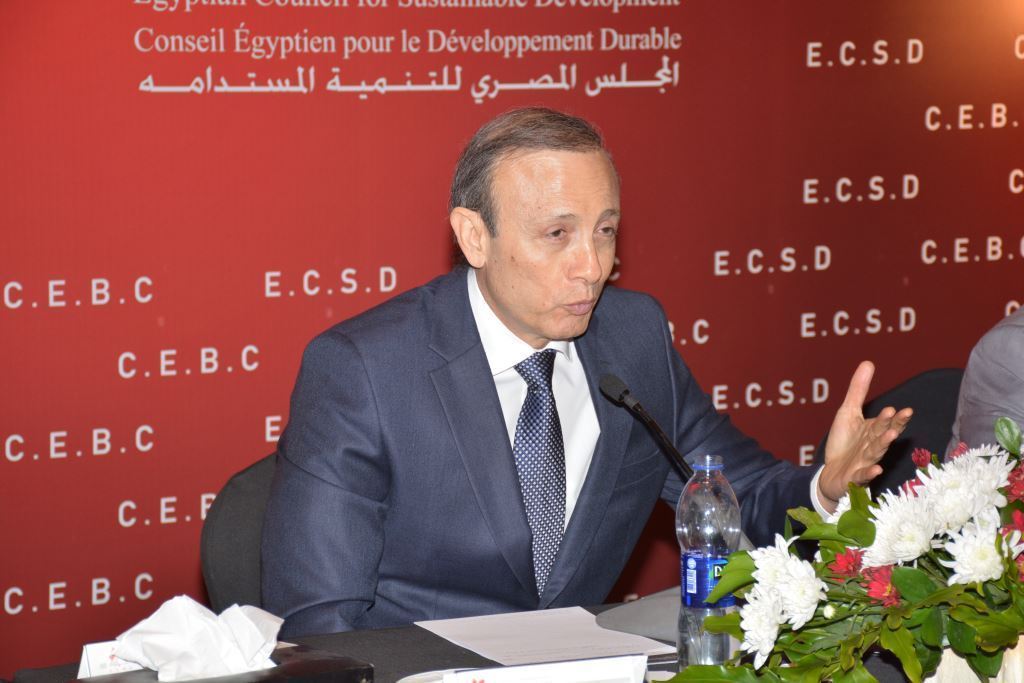
Date
Speaker(s)
Description
To address the latest plans of the Egyptian Tax Authority, the Canada Egypt Business Council (CEBC) and the Egyptian Council for Sustainable Development (ECSD) hosted a roundtable discussion featuring Dr. Hassan Abdallah, head of the research sector in the tax authority, as well as Said Abdelrahman, head of the central division for auditing in the tax authority. Atef Yacoub, chairman of the consumer protection agency of Egypt, also co-hosted the discussion. CEBC and ECSD’s esteemed members, guests, businessmen and reporters attended the roundtable discussion.
In his opening remarks, Eng. Motaz Raslan stressed that Egypt is facing huge financial challenges as of late. He said that Egypt has been suffering from one crisis after another. These included a sharp decrease in the tourism and investment industries, leading to a decrease in foreign currency, and driving the US dollar currency to a record high. “On one hand, the government is looking for new and alternatives solutions to decrease the budget deficit, including the introduction of the value added tax. On the other hand, nothing worries citizens like news of implementing a new tax, especially during these rough economical times”, Raslan said. He also recalled that the Minister of Finance has spoke of the benefits of the value added tax, saying it would increase the treasury of the tax authority to 30 billion Egyptian Pounds, as well as fix the problematic issues that are inherent in the current sales tax.
Abdelrahman assumed the floor and emphasized the importance of Egypt’s tax authority. He highlighted that most of the developmental projects of Egypt, as well as spending on education, health, security, and infrastructure are powered by the income of the tax authority. He also noted that about only thirty percent of Egypt’s population are tax payers.
He then proceeded to talk about the tax authority’s latest changes that took place in the past year. He said that they have carried out changes based on research in the market. They had also received from feedback from accountants and business people in general complaining from an overload of paperwork and information to fill out during the auditing process. The tax authority then decided to streamline the entire process. Among the actions they took was to decrease the number of required documents, and decrease the amount of required information on the forms. Abdelrahman also said the tax authority clarified the wording of the documents and simplified them in order to make them legible for all segments of society. He noted that segments such as drivers in the transportation sector had often found it difficult to fulfill their auditing paperwork.
Yacoub assumed the floor afterwards to express the consumer protection agency’s concerns on taxes and consumers rights. He stressed that there is an important need for all services, and not just goods, to be invoiced. This guarantees not only the governments rights in the form of taxes, but it also protects the consumer who has a proof of purchase. Yacoub emphasized the importance of the invoice in order to provide a system of transparency and traceability. He said that they have had meetings with representatives from the ministry of finance in order to ensure that the enforcement of the value added tax would not affect prices. It was also decided in the meeting that the final prices of any product or service would include all taxes in order for prices to be clear to consumers. The consumer protection agency has also formed a committee to make sure that traders don’t hold goods from the market in order to drive up prices of their products.
Dr. Hassan Abdalla then addressed the audience to talk specifically about the value added tax. He started off by noting that the tax would correct many negative aspects of the current sales tax. He explained that before they finalized the new value added tax, that the tax authority took suggestions from many entities. These included feedback from accountants, business people, unions, trade entities, chambers of commerce, and others. Abdalla explained that the value added tax would not be added to products or services that are deemed as necessary for the average citizen. The tax authority also worked to make sure that the tax would not add a hindrance to investors in Egypt. He said that the tax authority learned from the experience of many countries around the world that enforce the value added tax. Abdalla also added that the law is in its final preparation stages and that it will be presented to the parliament soon.
The floor was then opened for a lengthy questions session where a wide range of vital topics were raised such as specifics of the value added tax, e-commerce, challenges in invoicing, and the black market.













